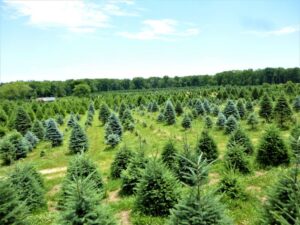Sessions hosted by Tim Waller and Bill Errickson – through RCE of Cumberland County
Individual Sessions – October 13th (Th), 20th (Th), 26th (W) 6-7:00pm (Login @ 5:30pm)
Please join us as we discuss topics applicable to all horticulture applicators – the classes of chemistries we use, which to use under various circumstances, and safe handling thereof. These sessions are valuable to our general understanding of IPM tactics via a deeper understanding of the tools available to us.
NOTE: These free virtual sessions (on Zoom) will count as “in-person”, meaning all attendees will receive offered CEUs if they: have a live video feed (and are visible) and upload a government issued photo ID + NJ Pesticide license prior via a secure Rutgers Connect folder (follow directions below, only the agents will have access to information for verification). This approach avoids the 25% online credit restrictions previously in place for those with licenses NOT expiring 10/31/2022.
Government issued photo ID and NJ Pesticide License upload:
- Click here to upload BOTH your government issued Photo ID and Pesticide License prior to the meeting
- Upload directions: If you click on the photo ID upload link using a smart phone/tablet you will have the option of simply taking a photo of your ID and uploading it directly into the system. Otherwise, you can scan a copy of your photo ID into a computer and follow the directions at the upload link. If you are unable to upload documentation prior to the meeting, please contact Tim Waller for assistance (twaller@njaes.rutgers.edu).
- Please upload files of your photo ID and applicator license to the link above as; “Last name_ First_ Photo ID” AND “Last name_ First_ Pesticide License”
Sessions: (You must register for each session individually, but only need to upload ID material one time)
Date: 10/13/2022 (Thursday)
- Click here to register for 10/13 (TH)
- How Chemicals Work and Which to Use (Tim Waller, Ph.D. RCE – Cumberland Co.)
- Tim Waller will be discussing the various types of chemistries and classes thereof that are available for use in comestible agriculture to horticulture to right-of-way to green industries when treating some form of pest (diseases, insects, weeds, etc.). He will explain how these materials behave in or on plants, their effects on pests, when to use which materials, proper handling and safety considerations, and concepts of pesticide resistance that will ultimately lead to better chemical stewardship.
- CEUs: CORE-2, 1A-2, 3A-2, 3B-2, 6B-2, 8C-2, 10-2, PP2-2
Date: 10/20/2022 (Thursday)
- Click here to register for 10/20 (TH)
- Science and Application of Horticultural Sanitation Techniques (Bill Errickson / Tim Waller – RCE – Monmouth / Cumberland Co.)
- Bill Errickson and Tim Waller will be discussing sanitation techniques that are broadly applicable to horticulture. Sanitation basics, chemical types, and locations where to best utilize sanitation approaches, will be covered. Sanitizing chemistries and pesticides will be highlighted throughout this presentation and will focus on proper handling and safety as many of these compounds are potentially dangerous. Throughout the presentation pest or plant life cycles will be discussed to demonstrate implementation of sanitation techniques.
- CEUs: CORE-2, 3A-2, 10-2, PP2-2
Date: 10/26/2022 (Wednesday)
- Click here to register for 10/26 (W)
- Horticulture Pesticide Safety and Regulation Updates (George Hamilton, Ph.D. – Rutgers Extension Specialist – Pest Management; NJ Pesticide Safety)
- Dr. George Hamilton will be discussing the reasons for wearing protective equipment (PPE) and the proper types of equipment to use. He will also cover regulations related to recording keeping and application exclusions as well as other pesticide safety related topics.
- CEUs: CORE-2
Contact RCE of Cumberland County – 856-451-2800 ext.1 with any questions.
ALSO – Rutgers Cooperative Extension of Gloucester County (254 County House Rd, Clarksboro, NJ 08020) is holding an in-person, half-day event, on Tuesday, October 18th from 9:00AM to 12:00PM at their office. Please click here for additional information. CEUs offered at that meeting: CORE-3, 1A-3, 3A-3, 3B-3, PP2-3
Instructions for Virtual Sessions:
- Register for each session individually at the above links
- Include your pesticide license number and date of birth if you would like recertification credits
- After registration you will receive a confirmation email with a link to the actual twilight meeting.
- Upload a copy of your government issued photo ID and pesticide license at the link above
- Day-of – 5:30pm: follow confirmation email link to the session (you may need to copy-paste it)
- Day-of: Have your video on if you wish to obtain credits
Required to be eligible to receive pesticide applicator recertification credits for these virtual programs:
1. Attend the entire meeting with live VIDEO feed on, seated in the center of the frame. Those without a webcam or phone attendees without a live video feed are not eligible to receive credits. Call-ins (audio only) are not eligible for pesticide recertification credits as of now; you need a computer/phone/tablet with *live* video capability. If you choose to access via your smartphone, it is recommended that it is fully charged or plugged in; and that any background applications are not running.
2. Attendees must participate throughout the entire session, staying to the end. Individuals are not eligible for credits if they arrive after the start of the first training topic or leave before the end of the last topic. Polls will be randomly scheduled, and attendance will be visually monitored to verify attendance.
Rutgers is dedicated to protecting your privacy and keeping your personal information safe. Upon upload, your files will be encrypted and stored to Rutgers Connect. Your information will be kept strictly confidential; used solely to meet NJDEP ID verification protocol for recertification credit; and will not be used for any other purpose. Your files will be deleted within 60 days after the training event.

